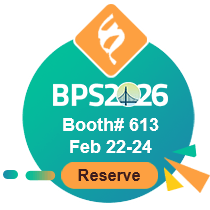| Species : |
Human |
| Source : |
Human Cells |
| Description : |
Interleukin-3 (IL-3) is belonging to hematopoietic growth factors. It is a secreted protein. IL-3 can improve the body's natural response to disease as part of the immune system. IL-3 stimulates the differentiation of multipotent hematopoietic stem cells into myeloid progenitor cells (as opposed to lymphoid progenitor cells where differentiation is stimulated by IL-7) as well as stimulates proliferation of all cells in the myeloid lineage (erythrocytes, megakaryocytes, granulocytes, monocytes, and dendritic cells) in conjunction with other cytokines, such as EPO, GM-CSF, TPO and IL-6. Additionally, IL-3 aids in embryo implantation and placental development, was found to be decreased both in pregnant women with antiphospholipid syndrome and in animal models of APS. IL-3 also participates in the response of the organism to various types of stress. |
| Bio-activity : |
The activity was measured by its ability to stimulate the proliferation of human TF-1 cells (human erythroleukemic indicator cell line). |
| Molecular Mass : |
19 kDa |
| Endotoxin : |
<0.5 EU/ μg |
| Purity : |
High Purity, >95% by SDS-PAGE |
| Stability : |
Use a manual defrost freezer and avoid repeated freeze-thaw cycles. In general: 12 months from date of receipt, -20 to -80 centigrade as supplied. 1 month, 2 to 8 centigrade under sterile conditions after reconstitution. 3 months, -20 to -80 centigrade under sterile conditions after reconstitution. |
| Storage Buffer : |
Lyophilized from a 0.2 μm filtered solution in PBS without carrier protein |
| Reconstitution : |
Briefly centrifuge the vial before opening. It is recommended to reconstitute the protein in sterile PBS containing 0.1% endotoxin-free recombinant human serum albumin. |



